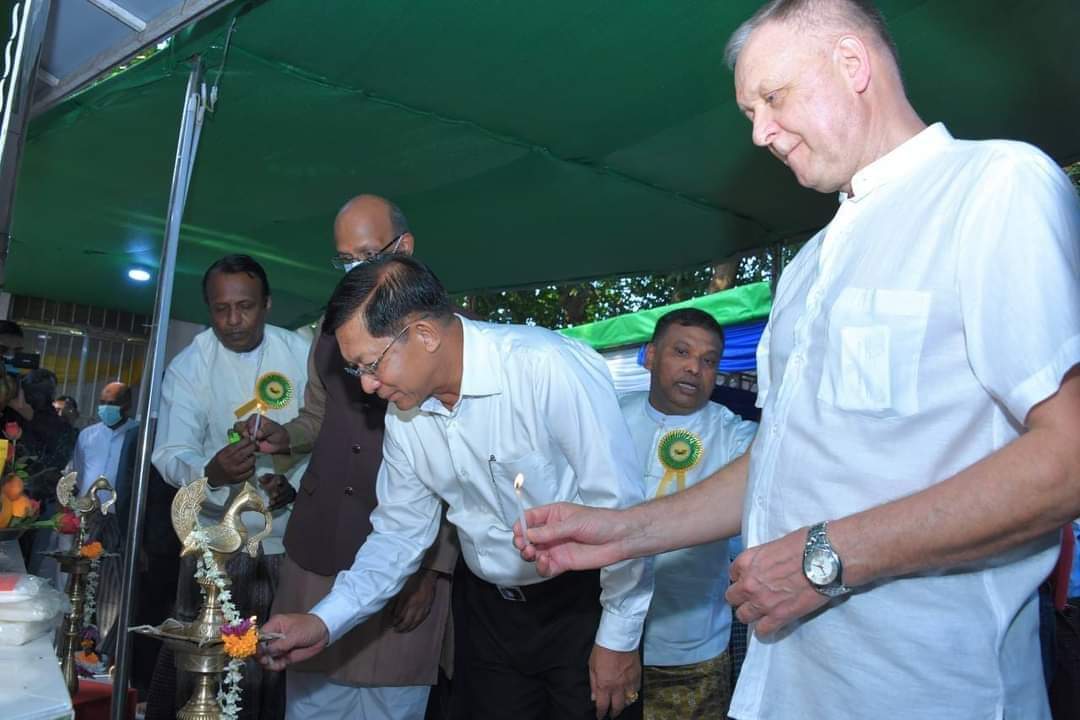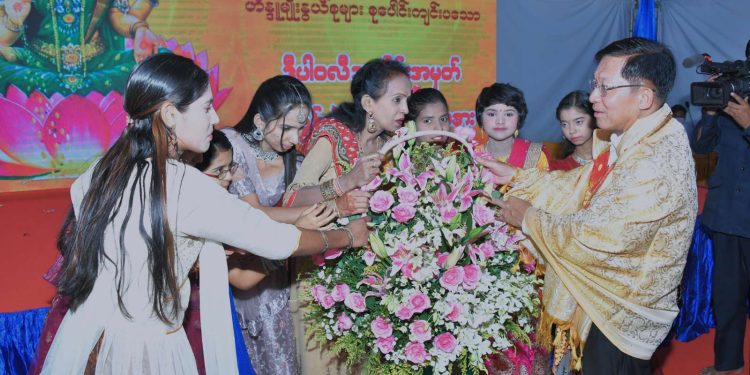India, the world’s largest democracy, continues to cement ties with Myanmar’s military regime which has slaughtered more than 2,400 people since the coup in February last year.
Junta chief Min Aung Hlaing attended celebrations for Diwali or the festival of lights, one of Hindus’ most important festivals, at a Hindu temple in Yangon on Sunday. Indian Ambassador to Myanmar Vinay Kumar thanked the junta boss for gracing the celebration with his presence and vowed to foster strong relations between the two governments.
Also present at the festival was Russian Ambassador to Myanmar Listopadov Nikolai Alexandrovich. Their presence drew criticism from Hindu communities in Myanmar.

On Tuesday, the Indian ambassador paid a call on the junta’s foreign minister U Wunna Maung Lwin. The two discussed strengthening bilateral ties and boosting cooperation in areas of mutual interest, including various sectors in regional and international arenas, according to junta media.
While Min Aung Hlaing’s regime has increasingly been isolated by the international community, China, Russia and India have boosted military and economic ties since the coup while also helping the junta with the general election that it plans to hold next year.
India is the second-most visited country by junta ministers and military leaders after Russia.
According to a report by Russian state-owned news agency Tass, Myanmar’s regime is interested in purchasing BrahMos supersonic anti-ship cruise missiles manufactured by BrahMos Aerospace, a Russia-India joint venture, with money borrowed from India.
Indian external affairs minister, Subrahmanyam Jaishankar, defended India’s ties with the junta during an address at Bangkok’s Chulalongkorn University in August.
Jaishankar said New Delhi’s position on Myanmar had been consistent for decades going back to the country’s independence struggle, and the relationship should not be judged by the current political situation in Myanmar. As a direct neighbor, India could not avoid dealing with the military junta regime because of complex border issues, he argued.
Less than two months after the coup, the then Indian ambassador attended an event to mark Armed Forces Day in Myanmar, defying a boycott by most other diplomatic missions in Myanmar and making India one of the few nations to recognize the junta as a legitimate government.
The Indian ambassador has frequently engaged with junta top officials since his appointment in February. Recently, he met with the junta’s electoral body to discuss the potential for cooperation for the general election the regime plans to hold next year.
The ousted National League for Democracy has condemned the poll, a position supported by the United States in a statement that read: “We share their convictions that the regime’s planned sham ‘elections’, which could not possibly be free and fair in the current context, will only fuel more violence, prolong the crisis, and defer the country’s transition to democracy and stability. We urge the international community to deny the military and its so-called ‘elections’ credibility and instead meaningfully engage with pro-democracy leaders who uphold a vision for an inclusive and prosperous Burma.”

















